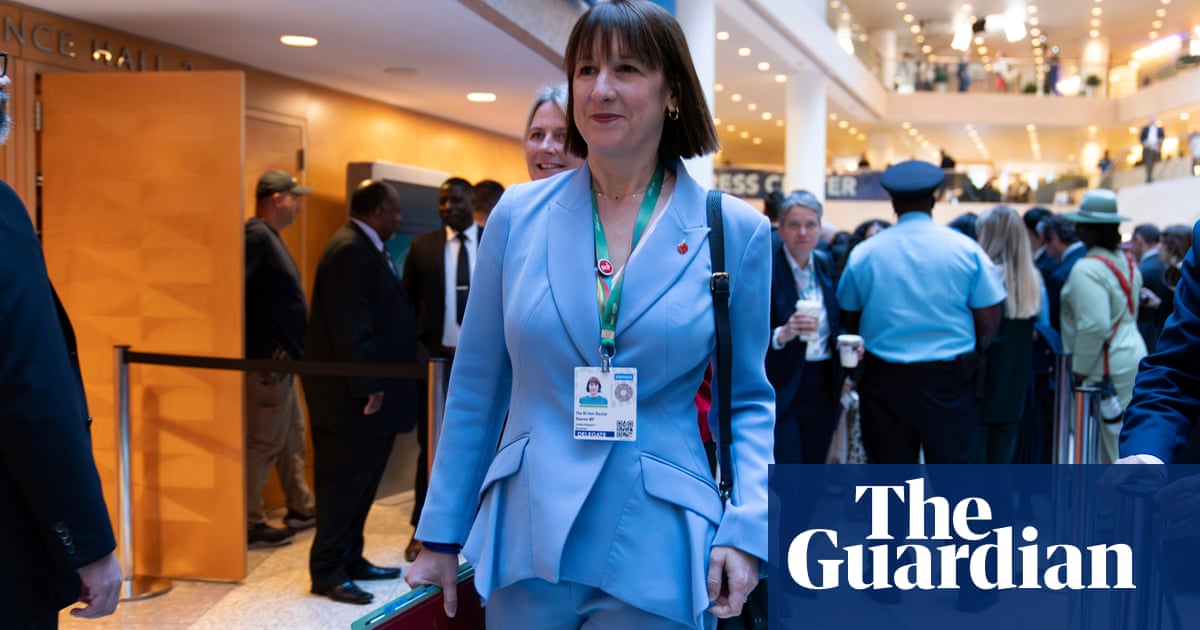Budget will reverse huge cuts in UK’s public investment, Reeves confirms

- by Admin
- October 24, 2024

Rachel Reeves will pledge to reverse huge cuts in public investment in her budget next week after she confirmed that rules limiting her spending power will be overhauled to enable the government to release as much as £50bn for infrastructure spending.
The chancellor said she would revise how the Treasury calculated shortfalls in the government budget over the rest of the parliament to free up funds to invest in public infrastructure.
Reeves chose the occasion of her trip to the International Monetary Fund (IMF) annual meetings in Washington on Thursday to announce that she would change Britain’s debt rules – as first revealed by the Guardian the previous day. She said she was not prepared to see public investment fall even further behind the levels seen in other major economies.
Experts have calculated that the new rules could release more than £50bn over five years compared with the plans left behind by the previous Conservative administration.
Reeves told reporters in Washington: “I can confirm today that I will be changing the way that we measure debt in the budget statement next week, but I’ll set out the details of that to parliament.”
She did not specify which of the various measures of debt under consideration had been chosen, but the Guardian has been told by a senior government source that she will target public sector net financial liabilities (PSNFL). That would take into account all the government’s financial assets and liabilities, increasing her latitude to borrow for investment in long-term infrastructure.
Seeking to allay concerns in financial markets that Labour would allow a spending bonanza, mimicking Liz Truss’s infamous mini-budget in 2022, the chancellor said she would maintain strict limits on Whitehall budgets and would not spend all the extra investment funds in her first budget.
“It’s really important for the sustainability of public finances that we give confidence to markets that we’re not borrowing to pay for the day-to-day functioning of government,” she said. “And we’ll work with the National Audit Office and the Office for Budget Responsibility [OBR] to make sure that all those investments are properly validated.
“It’s not to pay for tax giveaways. It’s to invest in things to get a long-term return for our country and for taxpayers.”
The cost of government borrowing increased ahead of the announcement, as bond traders considered the likely impact of UK debt levels moving higher after the Guardian’s report on Wednesday.
The yield – in effect the interest rate – on UK government bonds rose by about six basis points to trade above 4.2% in early trading on Thursday before easing, contrasting with a fall in borrowing costs for other comparable countries, including the US. The spread between gilts and German debt rose to the highest in more than a year, according to Bloomberg.
Analysts at Deutsche Bank said the increase was “still quite modest compared to some other pre-budget periods”, including Truss’s September 2022 event, when financial markets were thrown into a tailspin. But they added: “There’s little doubt that the overnight news has had an impact.”
Business leaders have been warning that uncertainty over Reeves’s budget has knocked confidence in the British economy in recent months, after warnings by the chancellor for households to expect “painful” decisions on tax and spending.
after newsletter promotion
Reeves said that although she would change how the debt rule was calculated to unlock more space for investment, she would stick firmly to a requirement for day-to-day spending to be matched by tax receipts.
Figures published on Thursday show growth in the private sector slowed by more than anticipated in October. Chris Williamson, chief business economist at S&P Global Market Intelligence, said: “Business activity growth has slumped to its lowest for nearly a year in October as gloomy government rhetoric and uncertainty ahead of the budget has dampened business confidence and spending.
The shadow chancellor, Jeremy Hunt, said Reeves’s decision to change the fiscal rules would force the Bank of England to keep interest rates higher for longer and therefore increase the sums paid on home loans.
“The consistent advice I received from Treasury officials was always that increasing borrowing meant interest rates would be higher for longer – and punish families with mortgages,” he said.
“What’s even more remarkable is that the chancellor hasn’t seen fit to announce this major change to the fiscal rules to parliament. The markets are watching.”
Reeves said the government would place “guard rails” on how investment spending was carried out to make sure taxpayers got value for money, adding that spending would be monitored by the OBR and the National Audit Office.
The Latest News
-
December 22, 2024Elon Musk’s British cousin reveals how brutally world’s richest man snubbed him: ‘I’m shocked that…’
-
December 22, 2024UK Weather: Wind messes up UK travel plans
-
December 22, 2024Life in one of Britain’s most miserable towns: Locals in Barking blast council ‘shambles’ and say shopping centre is so empty it is like living in a ‘ghost town’
-
December 22, 2024Christmas travel chaos continues with 100 Heathrow flights cancelled amid severe 80mph wind weather warnings
-
December 22, 2024Winds blow UK Christmas travel off course, with ferries and flights cancelled





